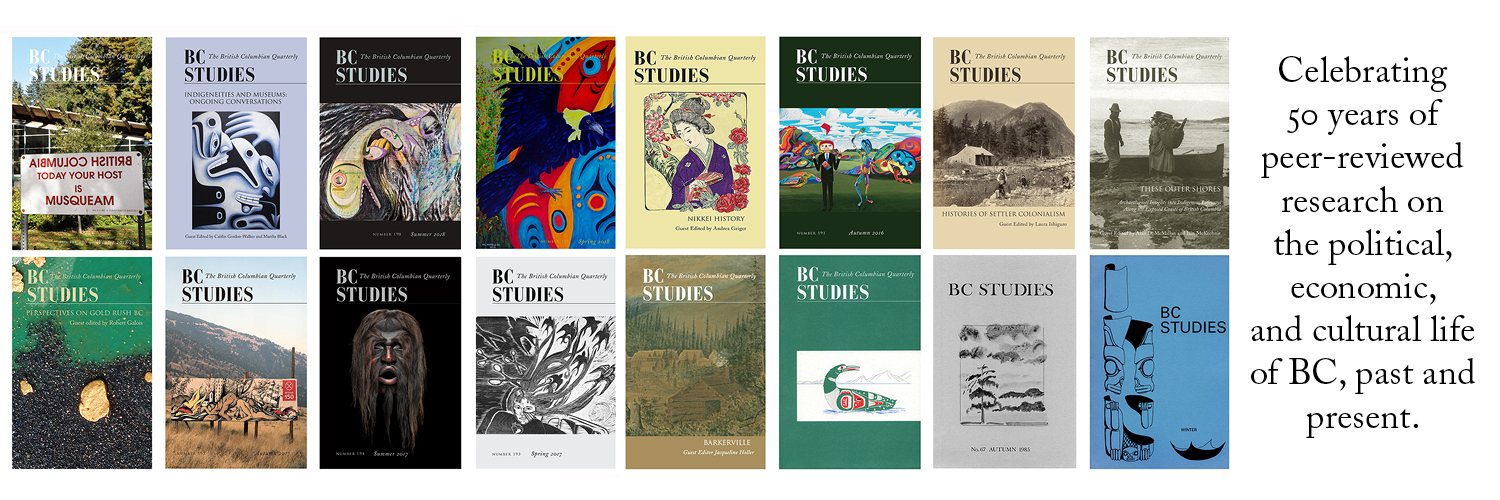"Colonizing Minds: Public Education, the "Textbook Indian", and Settler Colonialism in British Columbia, 1920-1970"
DOI:
https://doi.org/10.14288/bcs.v0i169.422Keywords:
colonialism, education, textbooks, aboriginal peopleAbstract
This article examines the relationship between public education, the representations of indigenous peoples as the Textbook Indian in secondary school textbooks, and the struggle for settler hegemony in British Columbia between 1920 and 1970. In drawing inspiration from critical pedagogy, the ideas of Antonio Gramsci, and postcolonial theory, this work shows how education in general and textbooks in particular were powerful tools of a project of colonizing minds. The colonizing minds project refers to the state’s process of manufacturing and manipulating public education to justify and rationalize colonialism and the development of settler society in British Columbia to students as commonsensical. This article argues that the colonizing minds project was subtly refashioned over time to reflect the needs, struggles, and changing historical circumstances of settler society in British Columbia during the twentieth century.
Downloads
Additional Files
- Figure 5. "The Surrender of Poundmaker"
- Figure 6. "Mask Dance by West Coast Indians by Paul Kane"
- Figure 7. "Indians Fishing Off the Coast of British Columbia"
- Figure 2. "An Indian Camp At Tête Jaune Cache, B.C. The Indians are Shushwaps"
- Figure 1. "Indians Smoking Salmon Along the Bulkley River, B.C"
- Figure 3. "The Iroquois Scourge"
- Figure 4. "A Mohawk Chief in Mayfair"



